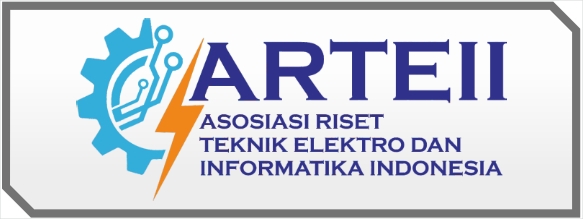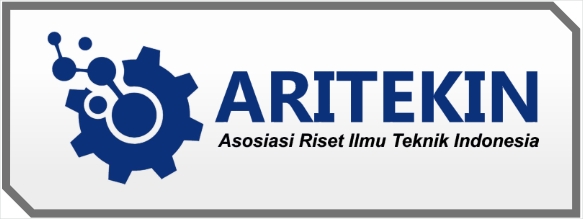Optimizing Human Capital in the Era of AI Advancements : Strategi for the Future Workforce
DOI:
https://doi.org/10.55606/icesst.v1i2.382Keywords:
Future Workforce, Human Capital, AI Advancements, Qualitative Research, Organizational StrategiesAbstract
This research aims to explore strategies for maximizing human capital in the context of advancing artificial intelligence (AI) technologies within the workforce. The study employs a phenomenological approach to understand individuals' experiences and perceptions regarding AI integration in the workplace. Through purposive sampling, data were gathered from a diverse pool of professionals across industries. Semi-structured interviews were conducted to delve into participants' perspectives on the impact of AI on job roles, skill requirements, and organizational dynamics. Thematic analysis was employed to identify recurring patterns and emergent themes within the qualitative data. Preliminary findings suggest a nuanced interplay between AI technologies and human capabilities, highlighting the need for upskilling, retraining, and fostering adaptability among employees. The study contributes to the discourse on optimizing human resources amidst rapid technological advancements, offering insights for organizational strategies to harness the synergy between human expertise and AI innovations in the future workforce.
References
Acemoglu, D., & Restrepo, P. (2020). Robots and Jobs: Evidence from US Labor Markets. Journal of Political Economy, 128(6), 2188–2244.
Autor, D. (2015). Why Are There Still So Many Jobs? The History and Future of Workplace Automation. Journal of Economic Perspectives, 29(3), 3–30.
Becker, G. S. (1993). Human Capital: A Theoretical and Empirical Analysis, with Special Reference to Education (3rd ed.). University of Chicago Press.
Braun, V., & Clarke, V. (2006). Using Thematic Analysis in Psychology. Qualitative Research in Psychology, 3(2), 77–101.
Brynjolfsson, E., & McAfee, A. (2017). The Second Machine Age: Work, Progress, and Prosperity in a Time of Brilliant Technologies. W. W. Norton & Company.
Bryson, J. J., Winfield, A. F. T., & Diamantis, M. E. (2017). The Ethics of Robot Servitude. In B. Siciliano & O. Khatib (Eds.), Springer Handbook of Robotics (pp. 1–20). Springer International Publishing.
Creswell, J. W., & Poth, C. N. (2018). Qualitative Inquiry and Research Design: Choosing Among Five Approaches (4th ed.). SAGE Publications.
Davenport, T. H., & Kirby, J. (2015). Beyond Automation: Strategies for Remaining Gainfully Employed in an Era of Very Smart Machines. Harvard Business Review, 93(6), 58–65.
Floridi, L., Cowls, J., Beltrametti, M., Chatila, R., Chazerand, P., Dignum, V., Vayena, E. (2018). AI4People—An Ethical Framework for a Good AI Society: Opportunities, Risks, Principles, and Recommendations. Minds and Machines, 28(4), 689–707.
Ghosh, R., & Nundy, A. (2020). The Future of Work: Rethinking Workforce Strategies in the Age of Automation. Journal of Organizational Change Management, 33(7), 1007–1024.
Irawan, D., Prabowo, H., Kuncoro, E. A., & Thoha, N. (2021a). Operational Resilience and Human Capital Toward Corporate Sustainable Longevity in Indonesian “Jamu” Industry. Journal of Asian Finance, Economics and Business, 8(3), 1035–1044. https://doi.org/10.13106/jafeb.2021.vol8.no3.1035
Irawan, D., Prabowo, H., Kuncoro, E. A., & Thoha, N. (2021b). The Moderating Role of Human Capital on the Operational Resilience and Strategic Orientation to Corporate Sustainable Longevity through Innovation Performance: Evidence from Indonesian Jamu Companies. Psychology and Education Journal, 58(4), 2799–2814. http://psychologyandeducation.net/pae/index.php/pae/article/view/5083/4432
Jobin, A., Ienca, M., & Vayena, E. (2019). The Global Landscape of AI Ethics Guidelines. Nature Machine Intelligence, 1(9), 389–399.
Lincoln, Y. S., & Guba, E. G. (1985). Naturalistic Inquiry. SAGE Publications.
Larkin, M., Watts, S., & Clifton, E. (2006). Giving Voice and Making Sense in Interpretative Phenomenological Analysis. Qualitative Research in Psychology, 3(2), 102–120.
Manyika, J., Lund, S., Bughin, J., Woetzel, J., Seong, J., & Sanghvi, S. (2017). Jobs Lost, Jobs Gained: Workforce Transitions in a Time of Automation. McKinsey Global Institute.
Mittelstadt, B. D., Allo, P., Taddeo, M., Wachter, S., & Floridi, L. (2016). The Ethics of Algorithms: Mapping the Debate. Big Data & Society, 3(2), 1–21.
Moustakas, C. (1994). Phenomenological Research Methods. SAGE Publications.
Patton, M. Q. (2015). Qualitative Research & Evaluation Methods: Integrating Theory and Practice (4th ed.). SAGE Publications.
Ross, J. D., Blount, Y., & Kishore, R. (2019). The Role of Human Resource Development in Artificial Intelligence Adoption: A Literature Review and Research Agenda. Human Resource Development Review, 18(4), 361–388.
Smith, J. A. (2015). Qualitative Psychology: A Practical Guide to Research Methods (3rd ed.). SAGE Publications.
Smith, J. A., Flowers, P., & Larkin, M. (2009). Interpretative Phenomenological Analysis: Theory, Method and Research. SAGE Publications.
Thoha, N., Fauzi, A., & Ahmar, A. S. (2021). Operational resilience and human capital: Toward corporate sustainable longevity in Indonesian Jamu industry. In International Conference on Business, Economics and Sustainable Development (ICBESD 2020) (pp. 51-58). Springer, Singapore.
Weiss, R. S. (1994). Learning from Strangers: The Art and Method of Qualitative Interview Studies. Simon & Schuster.
Downloads
Published
How to Cite
Issue
Section
License
Copyright (c) 2022 The International Conference on Education, Social Sciences and Technology (ICESST)

This work is licensed under a Creative Commons Attribution-ShareAlike 4.0 International License.















